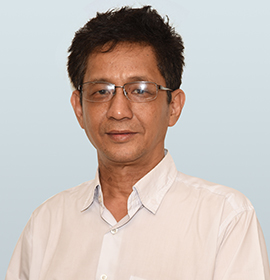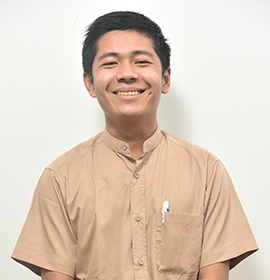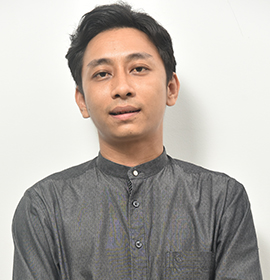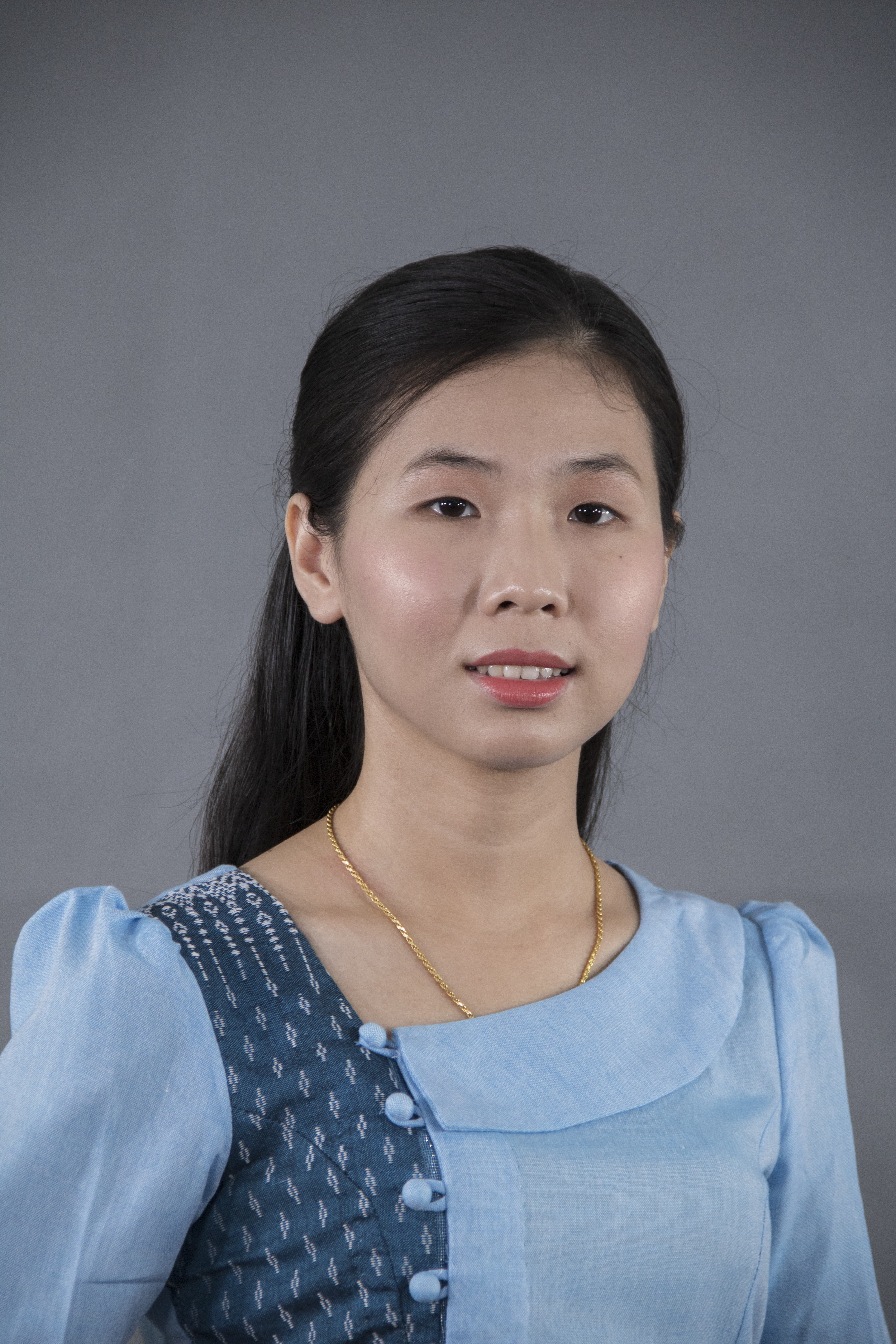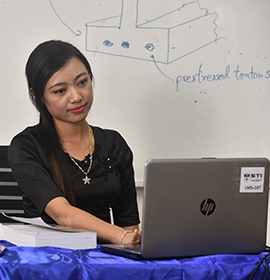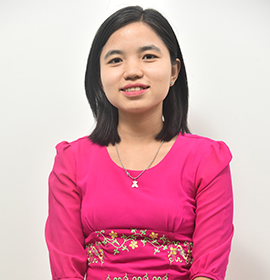MA Applied Linguistics (TEFL)
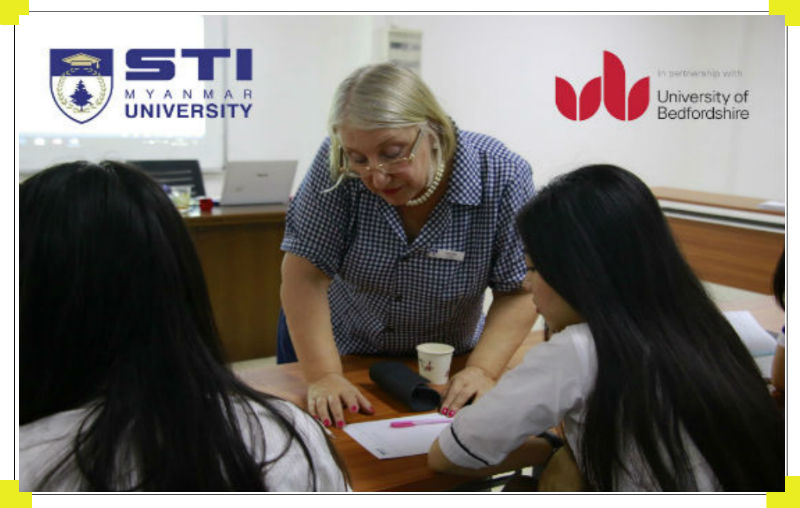
- 🎓 Category : FACULTY OF EDUCATION & LINGUISTICS
- 🎓 Program : Postgraduate Programs
- 👩🎓 Course Coordinator : Dr. Thein Tan
- This is a franchised Master program awarded by University of Bedfordshire (UK).
University Of Bedfordshire
About the course
The MA in Applied Linguistics (TEFL) offers an advanced level professional qualification for practising and aspiring teachers of English, but also for materials developers, assessment and examination/test paper writers and researchers in Applied Linguistics.
You will focus on areas such as the relationship between linguistics and second language learning, the methodology and techniques of language teaching and the appropriateness and development of materials for language teaching and learning purposes. You will also examine various current issues in ELT and have the opportunity to carry out a major piece of individual research on a topic of your interest.
You will benefit from:
📌Materials from the prolific and highly successful University of Bedfordshire Centre for Research in English Language Learning and Assessment (CRELLA), a world-leading research centre in language testing and programme evaluation
📌High-quality teaching by our experienced team
📌Invaluable opportunities to gain relevant and practical classroom experience with observed and assessed teaching practice
📌Opportunity to gain professional practical experience with a work placement programme
📌This course is designed for those who are seeking or further developing a career as teachers of English language. It will offer you professional training and development, as it includes observed and assessed teaching practice.
The MA in Applied Linguistics (TEFL) involves observed and assessed teaching practice, which gives distinct career advantages.
📌To provide advanced level practical classroom experience and training for teachers of English as a foreign/second/additional language;
📌To provide insight and experience in language teaching materials design, evaluation and development;
📌To deepen your understanding of the language systems of English: Phonology, Grammar, Lexis and Morphology;
📌To deepen understanding of how the Language Systems can be taught, and the challenges they pose for learners and teachers;
📌To develop research skills, and a critical understanding of relevant research issues;
📌To explore a number of theoretical issues relevant to language teaching and learning; for example, in the areas of language acquisition and intercultural communication.
Method of Assessment
The MA Applied Linguistics (TEFL) course employs a range of teaching and learning strategies whose focus is to develop expertise in Applied Linguistics research literature and its application in teaching, learning and research procedures.
The purpose of assessment is to provide opportunities for students to demonstrate the extent of their knowledge and skills at a given point. The outcomes are as important to the provider as they are to the student. To provide accurate, global readings therefore, the course takes an incremental and varied approach to the assessment of the course content, culminating in the dissertation. This is a substantial piece of original research on an aspect of Applied Linguistics TEFL, but whose precise focus is determined by each student, and according to their anticipated career plans. Here, the ability to plan, execute and evaluate independent research is assessed and represents the apex of a student’s postgraduate studies.
To complement and lead up to the dissertation, there are different types of assessment on the course, each designed to relate to the content and the cumulative body of knowledge upon which the research plans of the dissertation are based. Assessment methods have been selected to support the pedagogical development of research skills and subject knowledge, and to satisfy individual unit, and global course learning outcomes. The details of each assignment task are provided in the unit handbooks and individual Unit Information Forms. The overall assessment map is available in the course handbook. Each point of assessment provides opportunities for valuable feedback from teachers but also from peers to enable students to review and improve their work.
Entry Requirement
📌To complement and lead up to the dissertation, there are different types of assessment on the course, each designed to relate to the content and the cumulative body of knowledge upon which the research plans of the dissertation are based. Assessment methods have been selected to support the pedagogical development of research skills and subject knowledge, and to satisfy individual unit, and global course learning outcomes. The details of each assignment task are provided in the unit handbooks and individual Unit Information Forms. The overall assessment map is available in the course handbook. Each point of assessment provides opportunities for valuable feedback from teachers but also from peers to enable students to review and improve their work.
📌For non-native speakers of English IELTS 6.5 overall, or equivalent, with no score lower than 6.0.
📌For students who have recognised TEFL qualifications we offer recognition of prior learning. Typically this would apply to holders of the STIMU Diploma in TESOL who will be exempted from the 30 credit unit The Language System and Language Teaching
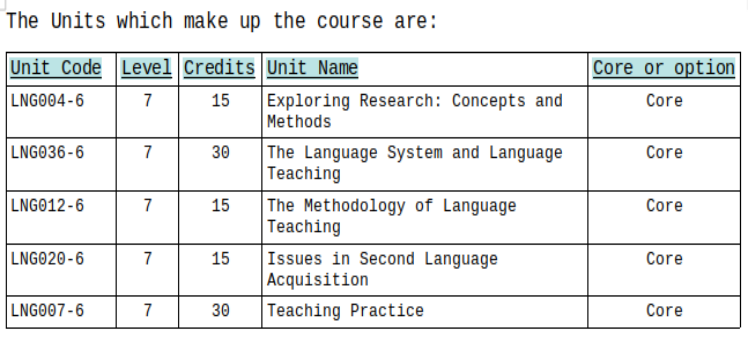
Course Fees
_



